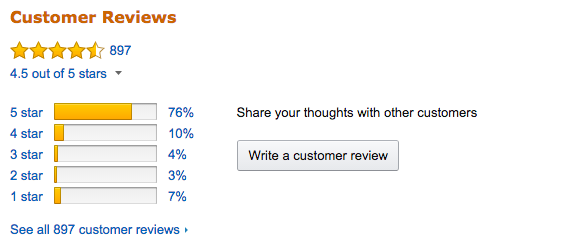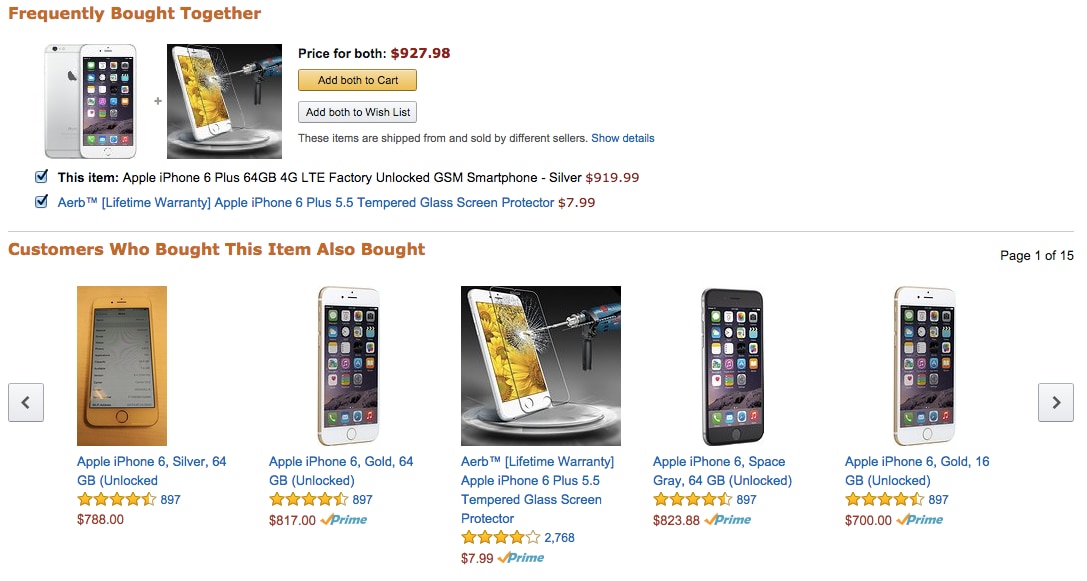As a wholesale business, you make money when retailers buy your goods – but that’s sometimes easier said than done. If you're out of ideas on how to attract more buyers, we have 10 tips for wholesale business owners that you might be interested in!

10 ways to increase your wholesale sales
How to increase your wholesale sales
Use the following tips to create a buying experience that retailers can’t get enough of:
1. Offer specials that bring retailers better-than-wholesale prices
Building double savings into your offerings through daily, weekly, or monthly deals will put you at a competitive advantage and help you move your merchandise more quickly and easily. B2B buyers will watch for these specials and will appreciate the added savings they receive when they deal with your company — which means more orders for you.
Like any retail establishment, wholesale businesses can also offer special deals on merchandise, beyond the initial wholesale discount. You can also offer incentives in the form of discounted prices for bulk orders.
Thorn Apple Valley, maker of various types of sausage, hot dogs, and other meat products is a great example of this. The company created an incentive program that won the Association of Incentive Marketing (AIM) Gold Incentive Showcase Award. What made it so great? They incentivized meat managers at Pathmark supermarkets with various Sony products or AT&T telephones, based on the percentage of their sales increase. The sales did increase, by a whopping 22%.
2. Provide outstanding customer service
Always treat your buyers with courtesy and radiate professionalism. Be willing to go the extra mile for a retailer who purchases your products, and never be afraid to lose an occasional "battle" in order to win the wholesale business "war." Treat every retailer with empathy and understanding — even if occasionally you have to refuse a request. This sort of treatment will go a long way toward creating loyal, higher-volume wholesale customers.
The little gestures do matter; just look at Amazon. The company implemented many industry firsts to take the customer experience to the next level. Among them are free shipping, order tracking, one-click ordering, customer reviews, and related product recommendations that make ordering quicker, easier, more convenient, and less costly.
In fact, Amazon was the first to introduce a customer review section on an eCommerce website in addition to their extensive, multichannel customer service approach.

3. Make wholesale ordering, delivery, and billing as seamless as possible
Automate your order management and product distribution processes as much as you can. The key value of automation is that it streamlines complex fulfillment processes and reduces the need for manual labor, enabling you to provide better, more efficient customer service from ordering to payment and shipping.
Within six months of fully automating its end-to-end distribution system, WinnCom Technologies , a distributor of networking solutions, achieved full ROI — nearly $250,000 — with projected annual savings of 20% of inventory value ($1.2 million to $1.5 million). In addition, the company nearly doubled its revenues during the six-year period following the automation of its operations (2000-2006).
4. Streamline your operations
Business owners that run their own companies efficiently expect the same from their suppliers. That means the onus is on you to maximize operational efficiencies at your own business. Integrating inventory, finance, shipping, logistics, etc. within an intelligent cloud B2B inventory management system or ERP inventory management system is a win-win for both the customer and your business.
For example, Essendant , a supplier of workplace essentials, provides their customers with one-day shipping on all products. By developing systems to streamline the company's order processing, they are able to ship customer orders within hours of receiving them.
5. Make order recommendations
In fact, you may want to suggest additional merchandise based on the order placed by the retailer, a process that can either be automated or handled by a live customer service representative. This is the equivalent of selling add-ons in retail sales.
Let’s go back to Amazon. They happen to be killing the game in this field as well. They offer customers related merchandise during checkout, as well as on every product page. This not only makes it easier for the customer to find related items if desired, but it also increases the likelihood of cross-selling or upselling, which puts more money in Amazon's pocket. The system is automated, making it a painless process for the customer and allowing Amazon to save their workers for tasks that can’t be done just as well by computers. To top off their strategy, Amazon offers free shipping on orders with a relatively low total cost. No wonder so many customers end up buying more than they originally planned.

6. Create compelling, eye-catching campaigns
Aesthetics are just as important as content. Use color, contrast, and other professional design elements to attract the attention of new B2B customers with an engaging digital marketing campaign, following up with sharp copy and a clear call to action.
Don’t forget about the power of email campaigns. Amazon did this in 2014 with their unique series of "merry" messages that featured whimsical animations with insertions of various Amazon products.
7. Offer special discounts to new buyers
A one-time discount for new customers can be an effective way to attract new business, whether the customer is a retailer or a consumer. If they like you enough, they’ll keep coming back, even without a discount.
Over a one-month period in 2013, L.A. based wholesaler NP Fashion boosted its get-ready-for-fall sales by rewarding its customers with free shipping and discounted pricing on its new line of handbags. Selling both to retail stores and direct to the consumer, NP Fashion offers special savings to retailers who sign on to carry their line.
8. Offer incentives for referrals
It’s all about who you know. Your buyers have their own networks. Leverage them by offering a reward for referrals so you can easily tap into these wholesale connections.
Dropbox’s referral program (which was based on PayPal's successful "refer-a-friend" program) increased signups by 60%. Within a 15-month period, signups rose from 100,000 to 4,000,000 — a success story for the record books. Dropbox rewarded both referrers and those referred with extra storage space in its cloud-based data storage platform. The rewards given were appropriate to each company's niche. Their rewards weren’t just rewards; they were targeted and personalized ones.
9. Advertise a free gift with every new buyer's first purchase
Everybody likes presents, including B2B customers. Consider offering different gifts based on the size of the initial order. You’ll make it even more likely that a buyer will select your company as its supplier while encouraging a larger initial purchase.
Western Digital , one of the largest computer hard drive manufacturers, won The Markies award for Most Creative Marketing Campaign for its 2012 Mystery Sale campaign. The Markies cited the company's "simple promotion mechanic (gift with purchase)" as one of two factors that helped Western Digital in "achieving an exceptional ROI." The campaign was so successful that the company responded by expanding it globally.
10. Provide limited-time offers that encourage retailers to buy now
You’ve got their attention. Don’t lose it. Building definitive deadlines into your offers can provide the incentive your prospect needs to move from "maybe" to "yes."
Western Digital also used a "limited-time offer" technique to promote its products – the second factor cited by The Markies for making the WD campaign a success.










